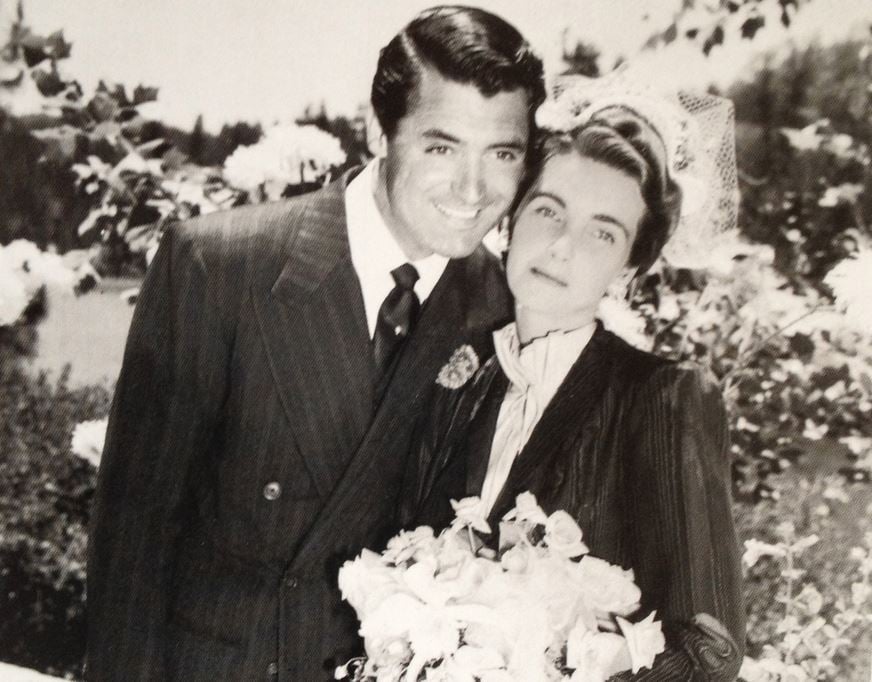There is no parallel in modern history to the recent events in Egypt, which have so quickly and effortlessly stripped people of their will. Within a year, the nation that went to the polls in free and fair elections to elect the lower and upper houses of parliament, choose the first civilian president in a multi-candidate race, and approve a new constitution, remarkably witnessed the reversal and invalidation of its nascent democratic institutions. After the triumph of the great Egyptian uprising in February 2011, such a tragic outcome was not the anticipated feat of its promising trajectory.
But the setback to the march of freedom and democracy in a region that has been plagued with despotism, repression, foreign domination, and corruption, could not have taken place without the active scheming and subversive action by myriad players led by the fulool counter-revolutionaries, or Mubarak loyalists and corrupt oligarchs, as well as the “deep state,” which is a decades-old web of corruption and special interests entrenched within the state’s institutions. Former justice minister Ahmad Makki detailed in recent interviews the depth of the entrenched elements of Mubarak loyalists including the judiciary, which actively undermined Morsi’s introduction of real reforms. Other actors who were dismayed by the rise of the Muslim Brotherhood (MB) and the Islamists in general, also played a critical role in dislodging them from power and creating a constitutional crisis. These players have not only included most secular, liberal and leftist parties and elites, but have also involved foreign powers such as Israel, Saudi Arabia and the United Arab Emirates, which saw the Egyptian revolution as a threat to their interests. Moreover, youth groups and ordinary citizens were frustrated with the slow progress in fulfilling the declared promises of the revolution, namely “decent living, freedom, social justice, and human dignity.”
A Military Coup with Civilian Co-conspirators
As I argued before, the July 3 military coup was not in response to calls for a second wave of the revolution as falsely presented by the anti-Morsi forces. It was a determined and well-orchestrated plot to oust the democratically elected president after a single year in power. One of the co-conspirators, Mona Makram Ebeid, plainly exposed some of the details in her speech before the Middle East Institute (MEI) on July 11. Ebeid is a veteran of Egyptian politics, jumping between the regime de jure and the opposition. She was not only appointed to the legislature by Mubarak as well as Morsi, but she also served as an advisor to the Military Council during the transitional period. As a Coptic Christian woman who espoused a secular outlook, she embodied the elements of an ideal minority representative. She was also appointed to the Constitutional Constituent Assembly – the body charged with writing the constitution – before the mass resignation of its secular members last November. According to her statement before the MEI, she was invited on the morning of June 30 to a meeting at the mansion of former Mubarak loyalist and housing minister Hasaballah Al-Kafrawi. Seated next to him was retired Gen. Fuad Allam, a former deputy chief of Egypt’s internal security service and a hardline MB foe. Having led the unit that monitored and investigated the religious groups for over two decades, Gen. Allam was one of the most notorious torture experts in the world. Among the attendees were also two-dozen secular journalists, academics, and opposition leaders. During the meeting, Minister Kafrawi stated that he had been in touch with the army, the Coptic Pope and Sheikh al-Azhar. He added that army chief Gen. Abdelfattah Sisi had privately requested a “written popular demand” in order to intervene on behalf of the opposition. By 3:00 PM, a statement by over 50 anti-Morsi public figures was delivered to the army demanding its intervention. Since the organizers had previously announced that the demonstration at Tahrir Square would launch at 5:00 PM, the statement issued that morning was in fact requested by the army and provided by the secular opposition before any meaningful anti-Morsi demonstration had ever come onto the streets.
If the military is in charge, can anyone still say it’s not a coup?
Gen. Sisi ousted President Morsi on July 3 as his co-conspirators, including opposition leader Muhammad ElBaradei, were looking on. The anti-Morsi forces believed they had outmaneuvered the hapless president, the MB, and their Islamist allies. Furthermore, they were convinced that within days their Islamist opponents would accept their fate and recognize the new status quo. If not, the new military-led regime was ready to beat them into submission using its Mubarak-era hardline tactics.
But contrary to these expectations, the MB, their Islamist allies, and hundreds of thousands of ordinary citizens who believed their votes had been discarded, took to the streets in large demonstrations. Tens of thousands camped out in major squares in Cairo, Giza, and around the nation. In their desperate attempt to scare off the demonstrators, the police and the army had committed within few days several massacres that included the July 5 carnage near the Presidential Guards social club that left over 50 people dead and hundreds wounded.
In his attempt to disguise the military rule behind a civilian façade, upon declaring the coup on July 3 Gen. Sisi appointed the head of the Supreme Court as the interim president. A few days later he chose ElBaradei as Vice President and economist Hazem Al-Beblawi, as Prime Minister. As the anti-coup demonstrations persisted for almost four weeks, Gen. Sisi delivered a speech on July 24 asking the public to demonstrate in the streets to give him “a mandate and an order” to crackdown against “violence and terrorism.” It was a brazen request to use brutal tactics to subdue the anti-coup protesters, who incidentally had called for massive demonstrations across Egypt to take place on the same day in their call to reinstate Morsi, activate the constitution, and restore the parliament.
Legal experts were perplexed by Sisi’s request since the army did not need a mandate to fight terrorism. That was part of its mission anyway. Even if a popular mandate was needed to crackdown on the opposition in the name of fighting terrorism, such an appeal should be made by the interim president or prime minister, not the military leader of the country. It was another unmistaken sign of who is actually in charge.
In his attempt to justify and rationalize the coup, Gen. Sisi told the public during his speech that he had been loyal to the deposed president and had done everything in his power to counsel him to compromise with the opposition. As evidence he stated that all his attempts were witnessed by former presidential candidate Muhammad Salim Al-Awwa, Ahmad Fahmy, the president of the upper house of parliament, and Morsi’s Prime Minister, Hisham Qandil. Within 24 hours, all three figures denied his assertions.
License to Kill
By July 26, both pro- and anti-coup demonstrators were mobilizing in the streets. In response to Sisi’s plea, the former mainly gathered around Tahrir Square, the Presidential palace, and a few other places around the country such as Alexandria. But as I discussed in an earlier article Tahrir Square could not hold more than half a million demonstrators. Despite their unverified claims to the contrary, pro-Sisi crowds could not have exceeded one million nationwide. On the other hand, the anti-coup demonstrators assembled in 35 different locations in twenty-five provinces across the nation with some estimating the crowd to number 5-7 million. Yet both sides exaggerated their numbers as the pro-coup declared their number to be over 30 million while the anti-coup claimed 40 million. Since June 30, the opposition has insisted on using the figure of 33 million in order to beat the highest turn out of 32 million voters during the parliamentary elections won by the MB-affiliated party in early 2012. Such an improbable figure would mean that two-thirds of the Egyptian adult population was in the street.
Another popular myth is the claim that in less than eight weeks 22 million registered voters signed a petition to demand early presidential elections as a prelude to the June 30 demonstrations. But the Tamarrod (or Rebellion) movement was established in late April by three young individuals and did not have an organizational infrastructure. Such an improbable feat would have required 4 million hours or half a million man-hours per week. Needless to say, no one has ever verified the authenticity of this petition. By contrast, the MB in 2010 was only able to gather less than one million anti-Mubarak signatures over several months, even with its massive organizational infrastructure on the ground.
Meanwhile, the official and pro-coup private media (incorporating almost all Egyptian-based media with the exception of Al-Jazeera Egypt) totally ignored the anti-coup demonstrators and declared by the end of the day that the Egyptian people have given Gen. Sisi his mandate to clampdown on the MB and their supporters. By midnight, the police, supported by hundreds of thugs, attacked a peaceful march of tens of thousands of pro-Morsi demonstrators in northeast Cairo. Over several hours the police used thousands of tear gas canisters causing severe burns and suffocation. It used live ammunition thatdeliberately killed over 200 protesters including 66 that were pronounced clinically dead. It also used birdshot that caused serious injuries. By the end of the ten-hour turkey shoot there were over five thousand people injured in addition to the fatalities. Doctors at the field hospital next to the area where the demonstrators have camped for weeks appealed for the public to donate blood and emergency medical supplies. The next day the government blamed the demonstrators as Interior Minister Gen. Muhammad Ibrahim blatantly lied that his officers did not fire a single shot against any demonstrator, not just on that day but ever – not even during Mubarak’s time. BothAmnesty International and Human Rights Watch condemned the killing and categorically blamed the government.
The Manufacturing of Hatred, The Death of Conscience, and the Return of the Police State
After the triumph of the 2011 uprising, many Egyptians proudly asserted that the most important achievements of this momentous event was the freedoms enjoyed by all Egyptians unleashed in its wake – of speech, press, assembly, and political association. In his last speech to the nation, Morsi boasted that during his one-year tenure not a single TV channel or newspaper was closed or a journalist imprisoned because of political opinion. In fact, Morsi issued a decree last fall that decriminalized a Mubarak-era law that outlawed written or verbal insults hurled at the president. In addition, there were no political prisoners during Morsi’s reign even though hundreds of violent demonstrations had taken place including the torching of dozens of government buildings and private properties, including the attack on the presidential palace using a crane and Molotov cocktails.
Yet in less than a month after the military coup, there have been more than 480 people killed, over 10,000 injured, and over 2,000 political arrests without legitimate charges for simply rejecting the coup. Al-Wasat (Center) Party leader Abulela Madi and his deputy Esam Sultan were arrested on July 29 and later charged with incitement and conspiracy to murder. According to Madi’s son, both political leaders were told at the time of their arrest that if they were to publicly support the coup they would not be arrested. Both summarily rejected the offer and went to prison.
During his press conference, Gen. Ibrahim nonchalantly acknowledged the return of the secret unit in charge of monitoring and prosecuting religious groups and individuals even though it was disbanded after the 2011 uprising. Not only was this unit reconstituted, but it rehired the same notorious officers who were in charge of the torture chambers during the Mubarak regime. They now have been re-instated to resume their infamous brutal tactics presumably with total impunity. Such blatant action prompted former presidential candidate Abdelmoneim Abol Fotouh, who initially accepted the ouster of Morsi, to reverse himself and question the coup’s real objectives.
Furthermore, within minutes of the ouster of Morsi, at least nine pro-Morsi TV stations were taken off the air. Remarkably, the Egyptian media, whether official or private, is precipitously singing to the same tune. With the exception of Al-Jazeera, rarely would one now find any criticism of Gen. Sisi or the coup on any TV channel. For weeks the Egyptian media has been relentless in portraying the MB and their supporters as violent, terrorists, extremists, foreign agents, conspirators, and murderers. The vicious

campaign has the combined features of fascism and McCarthyism. It embodies the hate filled 1930s campaign of Nazi Germany against the Jews, and the ugly media-led incitement of the Rwandan genocide of the 1990s. It has even reached the point where the state and liberal media or government officials and secular elites have rarely shown any sympathy to the killed or injured at the hands of the army or the police, as if they were foreign enemies or dangerous criminals, and not simply their political opponents. Such portrayals prompted prominent columnist Fahmy Howaidy toquestion whether the collective conscience of the Egyptian people has been fatally wounded.
In the aftermath of the December 16, 2011 massacre by the army in front of the Council of Ministers building that resulted in a few deaths, ElBaradei tweeted that the brutal crackdown on the peaceful demonstrators was unacceptable, inhuman, and in violation of all standards of decency and human rights. In addition, during that period Hazem ElBeblawi resigned as deputy prime minister to protest the army’s crackdown on the youth protesters, calling it barbaric. Having been appointed by the coup leaders as vice president and prime minister respectively, both men have given lip service to the hundreds of people killed while peacefully protesting the coup. One of the few voices that questioned the double standard of Egyptian liberals was Amr Hamzawy, himself a secular and liberal. He decried the death of Egyptian liberalism and cried out for its revival, for which he was not only criticized by the Egyptian media and the liberal elites, but has since been ostracized and viciously attacked.
Regrettably, many U.S. and Western media outlets, including such alternative media as Democracy Now! (DN), repeated much of the fabricated rhetoric about the violent behavior of MB supporters and anti-coup protesters within their camps and designated sit-ins. For example, without citing any evidence, the DN correspondent in Cairo repeated the preposterous claim that the MB demonstrators exhibited violent behavior or carried weapons. In fact, the anti-coup leaders have extended an open invitation to all journalists, media outlets, human rights organizations, and NGOs to join them and have unfettered access to inspect the whole area to demonstrate the nature of their peaceful protests.
Showdown: A Humiliating Proposal faced with Determination to Reinstate Morsi and Restore the Constitution
Meanwhile, the anti-coup demonstrators have shown determination and resilience. For five weeks they have not only rallied by the hundreds of thousands within major squares in Cairo and Giza, but were also able to expand and attract many pro-democracy groups and ordinary citizens who did not consider themselves particularly ideologically affiliated with the Islamists. Every day dozens of rallies in every province attract thousands of ordinary citizens who in turn march against the military coup declaring their rejection of its ramifications. Despite the intense heat, the fasting during the month of Ramadan, and the police crackdowns and harassment, the demonstrators have only increased in numbers. Furthermore, dozens of groups have been formed that joined the protesters against the coup: academics against the coup, students against the coup, journalists against the coup, etc., as well as lawyers, judges, farmers, laborers, professional syndicates, Azhari scholars, and even some Coptic liberals such as human rights activist and lawyer Nevine Milak.
However, throughout the crisis, coup leaders have shown no sympathy or willingness to compromise or engage in serious dialogue. Their empty rhetoric exhibited the language of the victor over the vanquished. According to a well-placed source close to the MB, by the fourth week, the military sent a proposal to a senior MB leader and former minister. It called for the MB to immediately disband their sit-ins, end their demonstrations, recognize and accept the new political reality (i.e., the military coup), and admit to their mishandling of ruling the country. In return, the military promised to release all MB prisoners, drop the charges, and allow the group to participate in the political process. The intermediary further told the MB leadership that in the next parliamentary elections the group would only be allowed to win 15-20 percent of the seats, while all the Islamic parties combined would not exceed 30 percent, a warning sign of fraudulent elections. The interlocutor then made it clear that the proposal was not subject to negotiation, but was a matter of “take it or leave it.” He warned that if the proposal was rejected, the military not only would crackdown heavily on the group to end their protests, but also that their group and affiliated party would soon be dissolved and outlawed. The MB defiantly rejected the offer out of hand, and vowed to remain in the streets, continue their peaceful protests, escalate their mobilization efforts, and further develop their civil disobedience until victory or death at the hands of the military and the police.
The U.S. and the West: It is not Confused, but Confusing
Throughout the process of planning and executing the ouster of Morsi and the MB, the U.S. was fully in the loop. Even though the U.S. was not certain whether the coup plotters would be able to pull it off, it urged Morsi during the months of May and June to appoint ElBaradei as prime minister even though the latter was quietly plotting to oust him. During late June, Secretary of Defense Chuck Hagel called Gen. Sisi at least five times while the coup was in progress. Along with National Security Advisor Susan Rice, Hagel eventually gave his blessing provided that civilian rule is restored within a few months. Gen. Sisi promised his counterpart that stability and calm would be swiftly restored. The Obama administration struggled to give the coup its blessing in public as it was clear that such support would contradict a 1961 law that prohibited providing aid or the support of the overthrow of a democratically elected government. But with few exceptions such as Sen. Rand Paul, most lawmakers including Intelligence Committee Chairman Congressman Mike Rogers gave their blessings and supported the coup. Sen. Tim Kaine of the Foreign Relations Committee even exposed the role of the UAE and Jordanian ambassadors in lobbying congress on behalf of the military coup.
Meanwhile, the leaders of the military coup have become very nervous as they failed to stabilize the country or tame the opposition one month after the coup. Only five countries, all monarchies, have publicly declared their support of the coup. They are Saudi Arabia, the UAE, Kuwait, Bahrain, and Jordan. Ironically, Tamarrod’s founder Mahmoud Badr has reversed himself with regards to his assessment of Saudi Arabia. Last year he strongly criticized the authoritarian system of Saudi Arabia, yet after the coup he profusely thanked its rulers for their support.
It is not by coincidence that much of the support to the coup in the U.S. has come from the pro-Israel quarters. Israel has been mourning the loss of Mubarak ever since his ouster. It considered Mubarak its “strategic asset,” which was demonstrated by Israel’s chief of staff,former Israeli ambassador to Egypt, and Israel’s enablers in the U.S. A retired pro-coup Egyptian general even argued that Morsi was toppled by the military for his strong support of Hamas in Gaza, which in his view threatened Egypt’s national security. Thus, with the return of the military at the helm of the country, Israel and its supporters believe they could regain their strategic relationship.
The reaction to the coup by the West has been timid to say the least. Initially, the West was cautiously waiting to see if the military was able to restore stability and move forward on its declared political roadmap. But by the fifth week, it became apparent that the political scene was still in turmoil with a complete political stalemate as the anti-coup protesters have remained defiant and determined to restore democracy, and defend Morsi’s legitimacy. The African Union has emphatically rejected the coup and suspended Egypt’s membership in the AU until democratic rule is restored. Similarly, Turkey, South Africa, Tunisia, Iran, Pakistan, Malaysia, and Indonesia strongly criticized the coup and called for reinstating the elected president.
Meanwhile, European Union foreign affairs chief Catherine Ashton visited Egypt within days of the coup. She was told then that the country’s stability would be restored within a short period of time. By the fifth week she again visited the country and demanded to see Morsi as his supporters filled the streets in their daily protests. In essence, Ashton sought a compromise that would incorporate the MB and their Islamist allies in a future political map. Europe could not look the other way as a dangerous and volatile situation continues to develop to its south. Uncharacteristically, she interrupted her press conference with ElBaradei and left abruptly after he rudely did not allow her to answera question by a French reporter. The questioner asked whether Morsi would play any political role in the future, to which ElBaradei quickly answered with an emphatic no, without allowing Ashton to answer, at which point she withdrew from the press conference. In addition, much of Ashton’s replies to the few questions she answered were mistranslated, thereby giving the audience the false impression that Europe had supported the coup. This sorry spectacle was a diplomatic disaster for ElBaradei and the coup leaders. But on August 1, the U.S. came to their rescue as Secretary of State John Kerry defended the military takeover in Egypt during his visit to Pakistan.
Possible Imminent Scenarios: Is a bloodbath around the corner?
It appears that everyone was passing the buck. Gen. Sisi asked the public on July 24 to give him a mandate through mass protests to crackdown on “violence and terrorism.” On July 27, military spokesperson Col. Muhammad Ahmad Ali declared that the mandate has been received. But in the days since the military has actually withdrawn from most of the areas surrounding the protesters. Military and political experts have been warning that the possible involvement of the army in killing the protesters might undermine not only the institutions of the state, but also unravel the army itself. By July 30, the interim president then gave Prime Minister Beblawi a mandate to declare a state of emergency and crackdown on the protesters who refuse to disband. Yet on August 1, Beblawi’s cabinet transferred that authority to Interior Minister Gen. Ibrahim, whose ministry immediately issued a stern warning to all protesters to disband or otherwise face a certain ending to their sit-ins and possible death. The protesters categorically rejected this unambiguous threat, and even dared the police to attack vowing not to resist while protesting peacefully.
But the decision to reject the offer of safe passage should not be surprising. In 1954, there was a similar standoff between the army and the MB. After weeks of massive demonstrations by the MB against the authoritarian rule of the military, the army asked for calm and requested dialogue and negotiations with the MB. Consequently, MB leader and judge Abdel Qader Odeh dismissed the crowds, but by the evening he was arrested along with many other senior MB leaders. Within weeks most leaders were charged with subversive activities including the assassination attempt of army leader Gamal Abdel Nasser. Eventually, six MB leaders were executed including Odeh.
Regrettably, government prosecutors and judges have politicized the judicial system and made a mockery of it, aggressively using Mubarak-era tactics. Former MB head and General Guide Mahdi Akef, as well as the current Guide Muhammad Badie, and his two deputies Khayrat Al-Shater and Rashad Bayoumi, were charged with murder and treason and could face the death penalty. Other Islamist political leaders were charged with ridiculous accusations in order to publicly humiliate them. For example, former parliamentary speaker and head of the Freedom and Justice Party (the MB affiliated political party), Saad Al-Katatni, and former presidential candidate Hazem Abu Ismail, were charged with forming a gang to rob houses. Meanwhile, as President Morsi was detained illegally for weeks while world leaders demanded his release, government prosecutors charged him this week with communicating with Hamas, a charge that is only considered criminal by Israel. Another accusation against Morsi was his escape from prison on January 27, 2011, when he was detained illegally by Mubarak’s goons at the height of the 2011 uprising.
For the past month, liberal and secular elites have urged the government to crackdown hard on the protesters regardless of how many people lose their lives. Some liberal supporters of the coup even argued that it is necessary to sacrifice blood in order to establish a secular democracy and ban the involvement of any religious group in politics. Meanwhile, the U.S. administration is willing to give the army and police one more chance to end the challenge posed by the anti-coup protesters. While the U.S. might look the other way if the loss of life is in the hundreds, it is unlikely that it would back the crackdown if the casualties are in the thousands.
Egyptian generals initially justified their military coup as the only option available to prevent bloodshed. Now they promise to spill blood, perhaps lots of it, in order to preserve their increasingly disintegrating coup. Meanwhile, the defenders of democracy and constitutional legitimacy are determined to stay the course until the will of the people is respected. It is the classic struggle between right and might. History shows that right ultimately prevails.
Esam Al-Amin is the author of The Arab Awakening Unveiled: Understanding Transformations and Revolutions in the Middle East. He can be contacted at alamin1919@gmail.com.
 By Sara Schapmann on August 1, 2013
By Sara Schapmann on August 1, 2013













